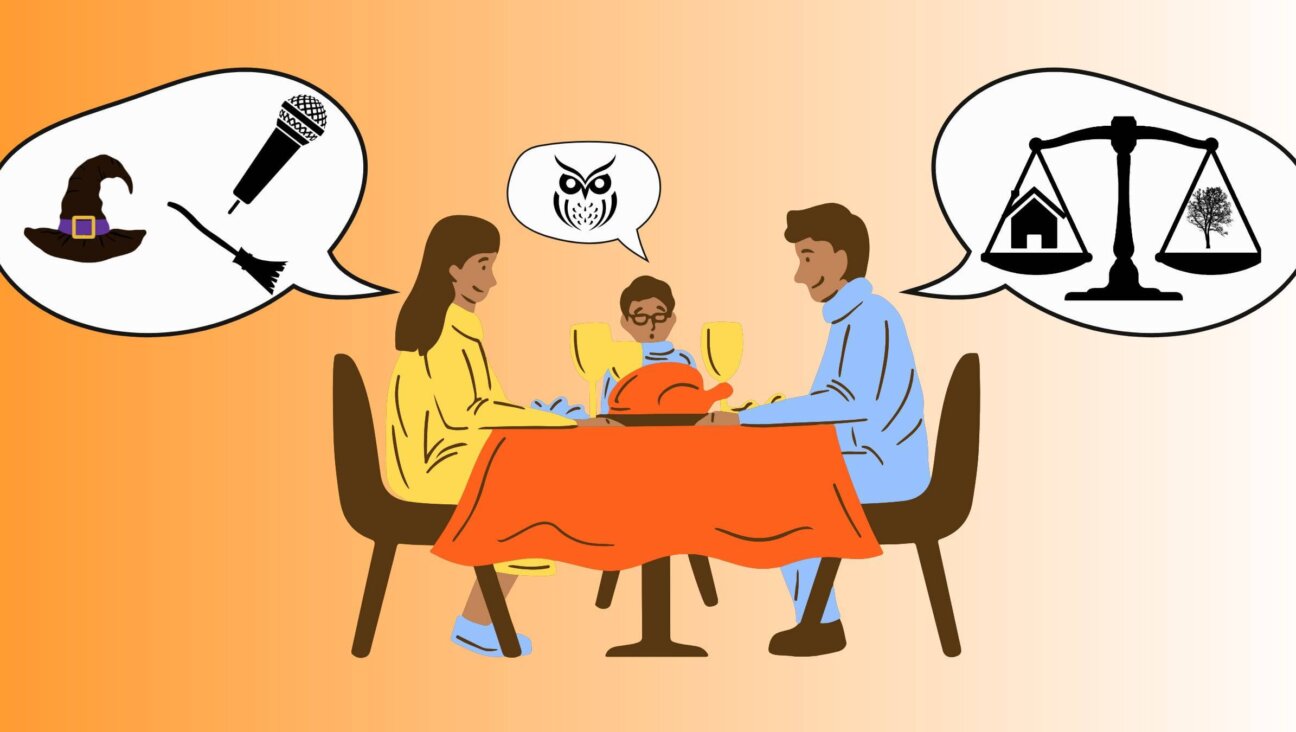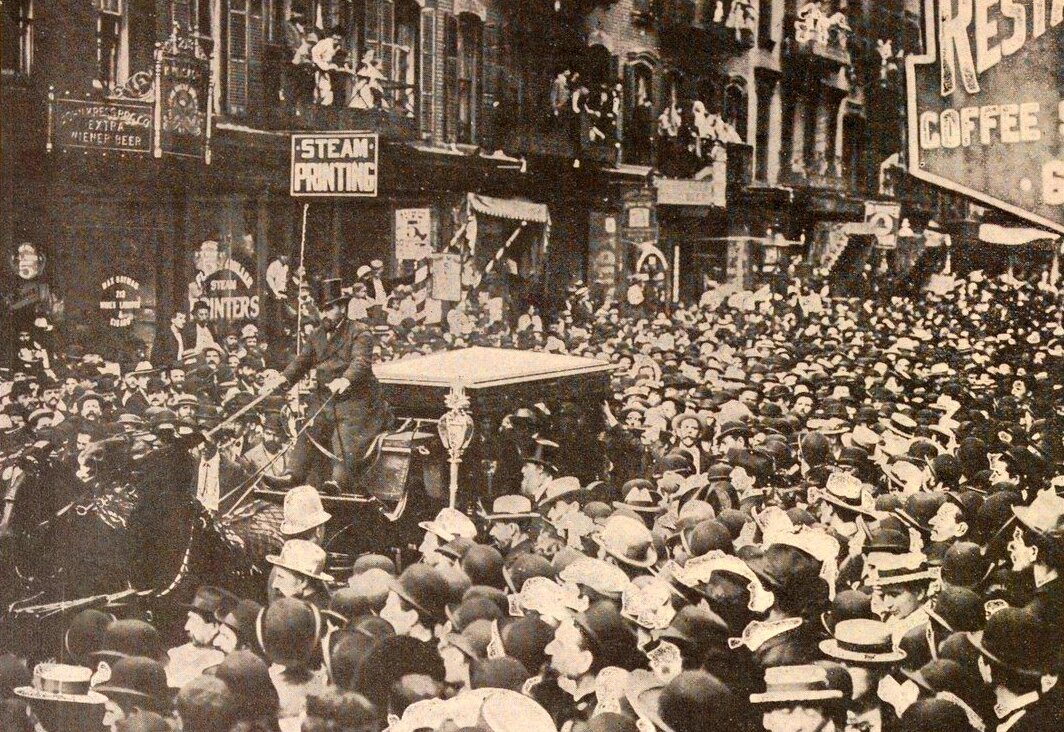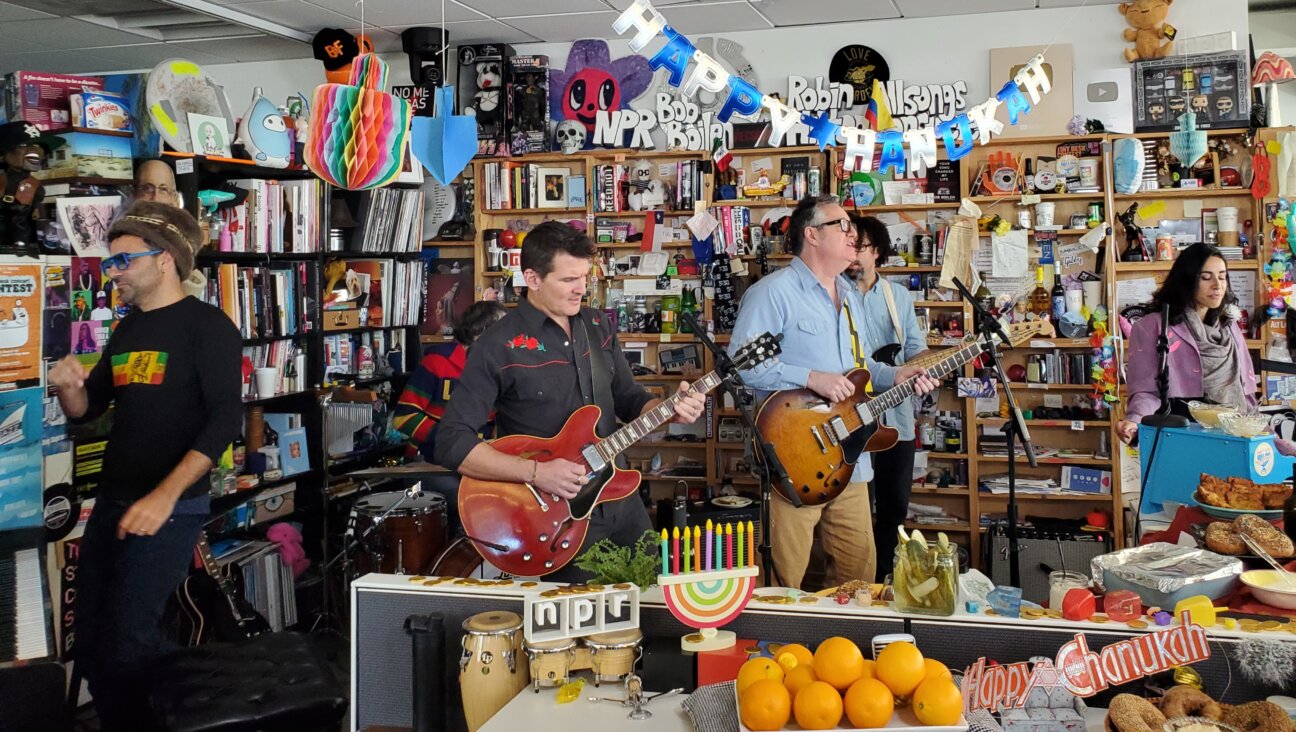Headbanger’s Thrall

The Russian-Israeli members of the group have all played in other bands – including art-rock, punk, metal, classical, and electronica – which may explain the eclecticism of their music.
Try this one on for size: In 2001, the members of the band Gevolt — six Russian Israelis, ages 23 to 31, based out of Ashdod — released their first album, “Sidur,” a collection of heavy metal songs performed in Russian. Driven by traditional European metal concerns — paganism, glorious battles and passionate love — and filled with a sensuous tone unlike those generally found in metal music, the album nevertheless generated mass indifference. And so, in search of a larger audience, Gevolt decided to switch to… Yiddish.

The Russian-Israeli members of the group have all played in other bands - including art-rock, punk, metal, classical, and electronica - which may explain the eclecticism of their music.
Lest one assume that this is a novelty act, a nostalgia-tinged conceit meant to grab headlines, pay heed: The band’s upcoming album, untitled as of yet, is one of the most sonically adventurous and intellectually engaging projects spawned in recent years.
The band members come from a diverse music scene, a possible explanation for the nervy eclecticism of their music. They’ve all played in other bands, including art-rock, punk metal, progressive metal, classical music and electronica. Yevgeny Kushnir, the band’s guitarist, plays in two other bands in his spare time: a rock/fusion/psychedelic band called Sumo Elevator and a psychedelic duo, Backnee. Still, it’s from an obscure subgenre of metal music that Gevolt takes most of its cues — the German movement known as Neue Deutsche Harte (New German Hardness), or NDH.
It is in this influence that Gevolt makes its bravest artistic statement. NDH bands have courted controversy with their attempts to shock audiences with Nazi sympathies; one of the most popular, Rammstein, never strays from its militaristic aesthetic and shows Leni Riefenstahl film clips in its music videos. Kushnir is careful not to criticize these bands, and gently distances Gevolt from Rammstein’s influence. “We don’t have anything to do with Rammstein, Nazism or anything like that,” he explained. “Having a low-voiced vocalist, heavy guitars and high-end production is something that we will not throw away because of [Rammstein].” Still, it is Rammstein’s essential conceit — the use of metal music as a show of dominant force — that attracts Gevolt to that style of music.
“Metal has a sort of its own energy, which you won’t find in jazz, psychedelicor klezmer music, for instance,” Kushnir said. “The key word is ‘power.’” By wrapping Yiddish words in metal music, Gevolt is trying to bring this power to Yiddish — to resurrect it.
On a cover of Hirsch Glick’s famous Warsaw Ghetto Partisan Song, “Zog Nit Keyn Mol, Az Du Geyst Dem Letsten Veg” (“Never Say That You Are on the Final Road”), that power manifests as defiant musical explosions and furious lyrics. It is not merely a musical adaptation. Gevolt’s cover seems to be the natural form that the song should take — all rage and fury, fists waving. It is in The Partisan Song, in fact, that Gevolt distinguishes itself, using a mismatch of genres to add meaning instead of eliciting a joke.
The other two songs on Gevolt’s promo are the light, festive “Tum Balalaika” and J. Kotliar’s “Shpil Zhe Mir a Lidele in Yiddish.” “Tum Balalaika” retains many of its original sounds, and the melody can be detected from within the harsh guitars and liquid metal sounds that appear on the track. And this fealty to the original tune may win Gevolt nontraditional fans, as Kushnir noted when asked what his grandparents think about Gevolt.
“An interesting fact: Put some Metallica to a Jewish old man, and he will say that it is noise. But right after he hears ‘Tum Balalaika’ in our heavy manner, he begins singing,” he said.
Indeed, the true irony of Gevolt’s use of NDH music may be that the band is redeeming a form of music that has its roots in the Yiddish community. NDH is a branch of industrial music, and industrial music emerged as a musical form of Dadaism. According to Tom Sandqvist’s history, “Dada East: The Romanians of Cabaret Voltaire” (The MIT Press, 2006), the community was a product of Eastern Europe shtetl life and Yiddish romanticism.
Thus the freshest and most surprising sound in the Yiddish revival is the one most steeped in history. Gevolt’s new music is like a resurrection, a theme not unheard of in metal music and one that Kushnir would probably describe with a bare but telling adjective: “Headbanging.”
Mordechai Shinefield is a music critic who has written for Rolling Stone, The Village Voice and the New York Press. He also writes a weekly online music column called Melody Macher for the Forward, which this week features a related Gevolt piece and sound clips.
A message from our CEO & publisher Rachel Fishman Feddersen

I hope you appreciated this article. Before you go, I’d like to ask you to please support the Forward’s award-winning, nonprofit journalism during this critical time.
We’ve set a goal to raise $260,000 by December 31. That’s an ambitious goal, but one that will give us the resources we need to invest in the high quality news, opinion, analysis and cultural coverage that isn’t available anywhere else.
If you feel inspired to make an impact, now is the time to give something back. Join us as a member at your most generous level.
— Rachel Fishman Feddersen, Publisher and CEO





















